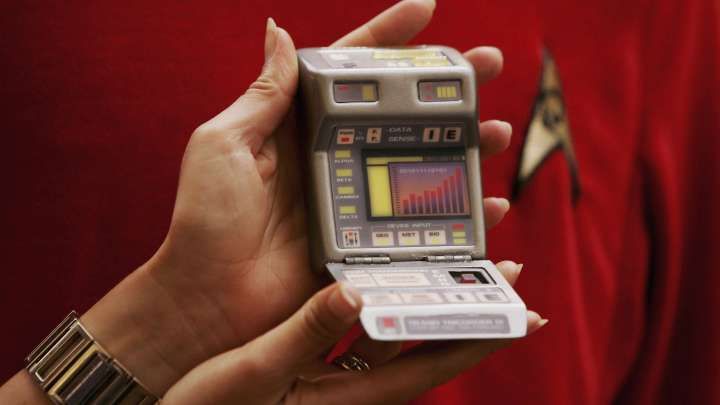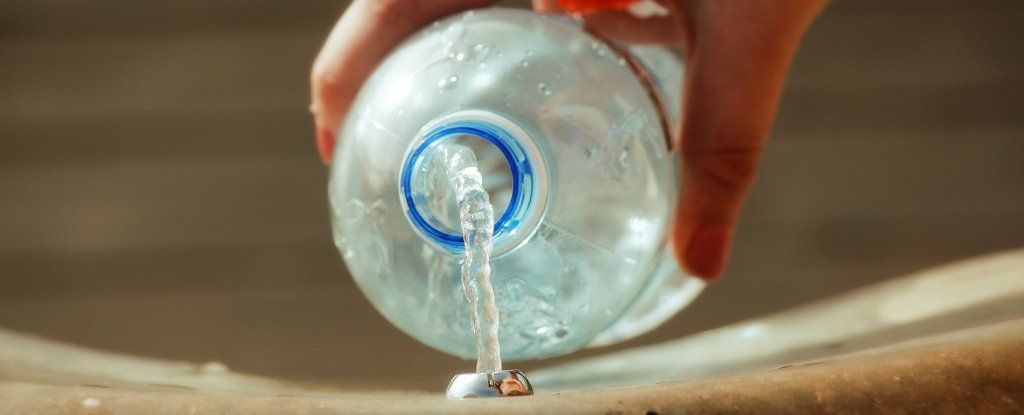Page 10398
Apr 13, 2017
Could We Hack Our Brains to Gain New Senses?
Posted by Shane Hinshaw in categories: cybercrime/malcode, neuroscience

- Researchers are using advancing technology to expand and augment our traditional senses, tapping into how our brains process signals and manipulating that sensory feedback.
- This research is transforming lives, giving the blind ways to “see” and the deaf ways to “hear,” and it could one day lead to the development of new senses altogether.
Traditionally, humans have five recognized senses: sight, touch, taste, smell, and sound. In the strictest sense, our reality is defined by anything and everything we experience through those five senses, but today’s technology is allowing us to live in a world beyond them.
The idea that humans may have more senses isn’t as far-fetched as it sounds. For example, our sense of balance and our body’s inherent pain monitoring capabilities would both be considered crucial sensory inputs. Not everyone experiences the traditional five senses in the same way, either. A small fraction of the population (around 4.4 percent) has synesthesia, a form of sensory perception that causes them to experience crosswired sensations such as “seeing” sounds or “feeling” tastes.
Apr 13, 2017
These steel-like socks could replace your favorite shoes
Posted by Shane Hinshaw in category: futurism
Apr 13, 2017
There’s A 47% Chance A Robot Will Steal Your Job
Posted by Shane Hinshaw in categories: employment, robotics/AI
Almost half of our jobs will vanish by 2033 due to robotics and computer automation, according to an Oxford University study. Another study commissioned by the real-estate services company CB Richard Ellis predicts that half the occupations we have now will disappear by 2025.
So who can expect pink slips during the Rise of the Machines?
Predictably, people who work on assembly lines, plantations and construction sites will be replaced by robots that don’t sleep, get sick or take smoke breaks.
Continue reading “There’s A 47% Chance A Robot Will Steal Your Job” »
Apr 13, 2017
Scientists Have Created a Device That Sucks Water Out of Thin Air, Even in the Desert
Posted by Shane Hinshaw in categories: materials, sustainability
When it comes to future challenges, one of the biggest will be water scarcity — on a warming planet we’re going to have plenty of seawater, but not enough fresh, clean water in the right places for everybody to drink.
And while a lot of research has focussed on desalination, a team of scientists have now come up with another possible solution — a device that pulls fresh water out of thin air, even in places with humidity as low as 20 percent. All it needs is sunlight.
It might sound too good to be true, but so far the research is solid. Called the ‘solar-powered harvester’, the device was created by teams from MIT and the University of California, Berkeley, using a special type of material known as a metal-organic framework (MOF).
Apr 13, 2017
Star Trek’s Tricorder Now Officially Exists Thanks To A Global Competition
Posted by Shane Hinshaw in categories: bioengineering, biotech/medical, holograms

Oscar Wilde once said that life imitates art, and science and engineering is often no exception to this. Science fiction certainly provides science types with plenty of inspiration for inventions, including holograms, teleportation, and even sonic screwdrivers.
Star Trek’s all-purpose medical device, the Tricorder, has also inspired a fair few people to recreate its near-magical ability to instantly diagnose a patient. As it happens, the non-profit X-Prize Foundation were so keen to get one invented that they started a global competition to see if any mavericks would succeed.
Continue reading “Star Trek’s Tricorder Now Officially Exists Thanks To A Global Competition” »
Apr 13, 2017
New pill considered key in the fight against ageing
Posted by Montie Adkins in categories: biotech/medical, life extension
This contains information that is not in other articles on the same topic of David Sinclair:
“The results certainly sound encouraging. Before he started taking a 500mg NMN pill every morning, 47-year-old Professor Sinclair had his blood tested and was told his body had a biological age of 58.
After consuming NMN for three months, he was tested again and his biological age was 32.”
Continue reading “New pill considered key in the fight against ageing” »
Apr 13, 2017
This college dropout says he’s cracked the crucial component for self-driving cars
Posted by Shane Hinshaw in categories: robotics/AI, transportation
Most companies working on autonomous vehicles consider lidar sensors mandatory for vehicles to safely navigate alone and distinguish objects such as pedestrians and cyclists. But the best existing sensors are bulky, extremely expensive, and in short supply as demand surges (see “Self-Driving Cars’ Spinning Laser Problem”). Alphabet and Uber have both said they were forced to invent their own, better-performing sensors from scratch to make self-driving vehicles viable. Luminar hopes to serve automakers that would rather not go to that effort.
Russell doesn’t have a college degree—he dropped out of Stanford in return for a $100,000 check under a program started by venture capitalist Peter Thiel to encourage entrepreneurship. But Russell says a (short) lifetime of tinkering and building with electronics helped him design a new lidar sensor that sees farther and in more detail than those on the market.
Apr 13, 2017
AI picks up racial and gender biases when learning from what humans write
Posted by Sean Cusack in categories: information science, robotics/AI
Artificial intelligence picks up racial and gender biases when learning language from text, researchers say. Without any supervision, a machine learning algorithm learns to associate female names more with family words than career words, and black names as being more unpleasant than white names.
For a study published today in Science, researchers tested the bias of a common AI model, and then matched the results against a well-known psychological test that measures bias in humans. The team replicated in the algorithm all the psychological biases they tested, according to study co-author Aylin Caliskan, a post-doc at Princeton University. Because machine learning algorithms are so common, influencing everything from translation to scanning names on resumes, this research shows that the biases are pervasive, too.
“Language is a bridge to ideas, and a lot of algorithms are built on language in the real world,” says Megan Garcia, the director of New America’s California branch who has written about this so-called algorithmic bias. “So unless an alg is making a decision based only on numbers, this finding is going to be important.”
Continue reading “AI picks up racial and gender biases when learning from what humans write” »
Apr 13, 2017
NASA: Nearby ocean worlds could be best bet for life beyond Earth
Posted by Sean Brazell in category: space
Fascinating stuff!
NASA has new evidence that the most likely places to find life beyond Earth are Jupiter’s moon Europa or Saturn’s moon Enceladus. In terms of potential habitability, Enceladus particularly has almost all of the key ingredients for life as we know it, researchers said.
New observations of these active ocean worlds in our solar system have been captured by two NASA missions and were presented in two separate studies in an announcement at NASA HQ in Washington today.
Continue reading “NASA: Nearby ocean worlds could be best bet for life beyond Earth” »
















